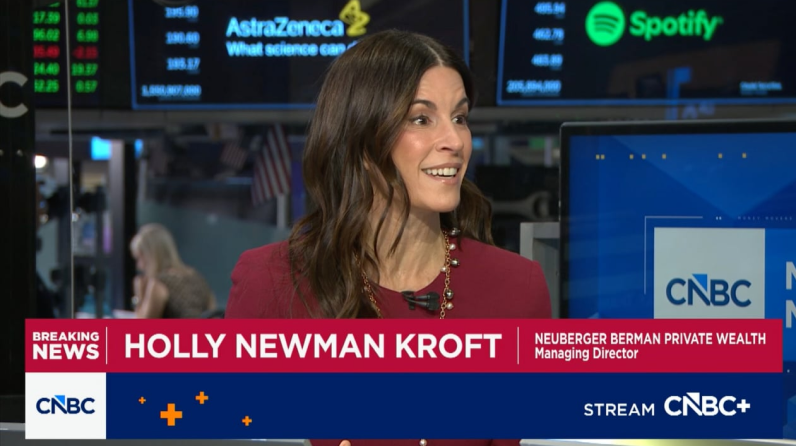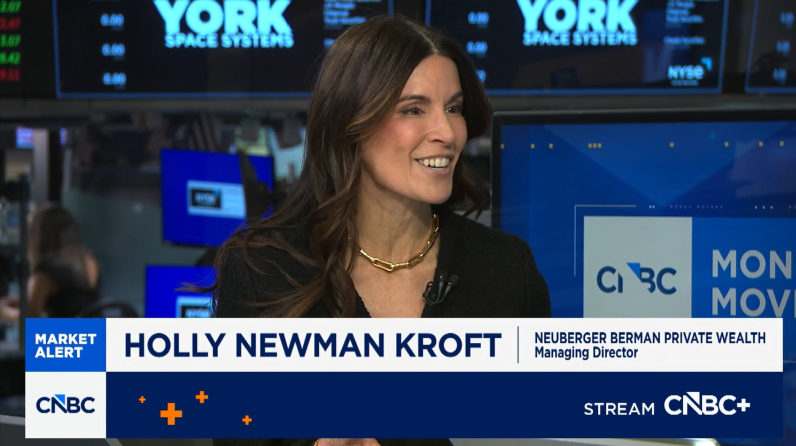

A focus on fundamentals and partnership with successful managers is, in our view, key to success in the private markets arena.
Private markets are well known as a means to diversify and seek returns distinct from those available in public markets. But what does it take to succeed in this area, and what’s our approach to generating opportunity?
Potential Benefits of Private Markets Investments
Before getting into “what works,” it’s helpful to understand the broad case for private markets investments. As we’ve often explained to clients, it includes the growing number of private companies available for investment relative to public companies, and key advantages enjoyed by managers in the private space, such as better information flow, greater control of portfolio companies, less pressure for near-term results, and more flexibility in the timing of entries into and exits from portfolio positions.
Also crucial is the diverse array of strategies available, from venture capital to buyout funds to secondary investments consisting of mature investments already in the marketplace. Add to that the multiple structures in which to invest that cater to client needs—from high-minimum primary funds with gradual capital calls to more accessible semi-liquid registered funds with lower minimums and single capital calls.
From a portfolio perspective, private markets investments can serve an array of purposes: Private equity can be a source of capital appreciation potential, private credit can offer a new source of total return and income, and private real estate can provide diversification and an inflation hedge. The levels of potential exposure among these areas and in specific funds depend on individual circumstances and priorities, as well as qualification thresholds. A useful summary of the basics is available as part of our Thematic Currents series.
Fundamentals, Diversification
Beyond the broad concepts, what constitutes an effective approach to generating risk-adjusted return from private markets investments? We think the answer is to combine a focus on fundamentals and prudent risk management.
At Neuberger Berman, we look to build diversified portfolios across company, sector, geography and manager. As part of this process, we seek to invest in quality businesses alongside top-tier managers in their core areas of expertise. We look to be a provider of valuable capital and a partner to other private markets firms to enhance their efforts and to also generate robust deal flow for our clients; this helps us to be highly selective and create portfolios of private market investments that we believe reflect attractive risk-adjusted opportunities. We can do this through primary investments into the private markets managers’ funds; equity co-investments, credit or other capital solutions directly for their portfolio companies; and by offering secondary liquidity solutions.
We believe all of the above gives us unique access, deal flow, information and a due diligence advantage in an asset class that is notoriously difficult to analyze and access, particularly when it comes to top-tier managers. We benefit from relationships developed over three decades in the business, as well as our large, experienced team, many of whom have been here for years.
Similar to the industry at large, we avoid the old practice of “financial engineering”—for example, purchasing mature manufacturing businesses, loading the balance sheet up with financial leverage, paying down the leverage and exiting at an increased multiple. Today, deals typically contain much less debt, which means that skill in running and creating value within the business becomes more important. We also seek to avoid cyclical businesses in order to minimize the impact of market cycles: Given longer investment timeframes, it is more difficult to time investments in private than public investing.
Importantly, our process is highly selective, involving extensive research on investment managers, including their track records and how they were achieved, their success in executing value-creation plans and more. We emphasize owning market-leading companies in industries with secular growth tailwinds (e.g., software, technology or business services). The companies often have robust business models, healthy profit margins and strong topline growth that can persist through economic cycles.
The Current Environment
In our view, such advantages may be particularly important in today’s environment, which has changed dramatically in the wake of tighter financial conditions and a more mixed fundamental picture. We believe differences among companies are likely to be accentuated given structurally higher inflation, current elevated interest rates and likely slower growth.
This means that two past sources of private markets returns may be harder to achieve: the use of cash flow to pay down debt and increase equity, and relying on potential increases in valuation multiples over time (given already full valuation levels). We feel this puts the focus more squarely on investment selectivity and the array of levers that managers can apply to seek positive results, such as: management training and incentives to enhance alignment with investor interests, capital and resources to support growth and operational improvement, and financing of strategic mergers and acquisitions.
Interestingly, although deal volume in the private equity market has been sluggish, our platform has experienced increased deal flow as firms have looked for liquidity and financing. Moreover, we are finding particular opportunity within a few general areas: general partner (GP)-led secondaries, co-investments, private debt and capital solutions opportunities.
Given the outperformance of private markets in recent years1 and a slowdown in distributions from existing investments, many institutional investors are looking for liquidity to redeploy excess exposures to other areas. For their part, the managers, or GPs, may want to stay invested in what they consider still-promising holdings while attracting needed capital. GP-led secondary offerings can allow both to happen while opening a new door for other investors. We’ve also observed that co-investments, or direct investments in companies alongside private equity managers, have become attractive amid scarce capital and reduced competition. Private debt, meanwhile, has displaced banks and other lenders in providing valuable capital to businesses, and continues to offer compelling yields in exchange for a degree of illiquidity. Finally, capital solutions provide customized structures for GPs and their portfolio companies.
Integration Into Portfolios
In considering private equity or debt for portfolios, a key issue is liquidity—both as to the timeframe of the investment and the pattern of capital calls and distributions found in more traditional vehicles. In terms of risk, it can make sense to align new exposures with analogous public areas—private equity with public equity and private debt with public fixed income. Overall, we often look to private markets to represent about 10 – 15% of a moderately aggressive portfolio, but specifics may vary dramatically.
Stepping back, we also believe a decision to invest should entail selectivity. Results in this universe can vary significantly, so aligning yourself with an experienced, prudent manager can help potential for successful outcomes. Your NB Private Wealth team can help you consider the issues.
What Makes an Effective Private Markets Manager?
Deep and Experienced Investment Team
- Large, experienced and stable team with strong investment judgement
- Established due diligence and investment processes
Access
- Robust deal flow
- Access to top-tier opportunities with the ability to secure desired allocations
- Information advantages
- Strong risk management
Ability to Build a Diversified PE Portfolio
- Opportunistically invests across asset classes, vintage years, strategies and geographies
- Legal/structuring resources
Long-Term Track Record
- Strong historical returns against major public markets with relatively low correlation to traditional asset classes


Accolades
Forbes | SHOOK 2026 Top Women Wealth Advisors

INSIGHTS
CIO Notebook: January Jobs Prove Worth the Wait

VIDEO
Holly Newman Kroft Featured on CNBC’s Money Movers February 10th

MARKET COMMENTARY
A Rocky Rotation

VIDEO
Holly Newman Kroft Featured on CNBC’s Money Movers January 29th

INSIGHTS
Seismic Shifts That Could Drive Private Markets

INSIGHTS
Concentrated Stock Risk: Working From All Angles
INSIGHTS
Trump 2.0: Middle Innings of an Uncertain Game
INSIGHTS
Preparing Your Children for Wealth: A Life-Stage Roadmap
VIDEO
Highlighting Jenna Elson, Team Kaminsky’s Dedicated Certified Financial Planner®
INSIGHTS
CIO Notebook: Fed Stands Firm as Powell’s Successor Waits in the Wings
MUNICIPAL BASIS POINTS
Buckle Up
REPLAY
Private Wealth Investment Outlook 1Q26
1Source: Burgiss, MSCI. Returns for pooled private equity outpaced the MSCI World index over five-, 10-, 15- and 20-year periods through 2Q 2023 (latest available data).
This material is provided for informational and educational purposes only and nothing herein constitutes investment, legal, accounting or tax advice, or a recommendation to buy, sell or hold a security. This material is general in nature and is not directed to any category of investors and should not be regarded as individualized, a recommendation, investment advice or a suggestion to engage in or refrain from any investment-related course of action. Investment decisions and the appropriateness of this material should be made based on an investor’s individual objectives and circumstances and in consultation with his or her advisors. This material is not intended as a formal research report and should not be relied upon as a basis for making an investment decision. The firm, its employees and advisory clients may hold positions within sectors discussed, including any companies specifically identified. It should not be assumed that any investments in securities, companies, sectors or markets identified and described were or will be profitable. Neuberger Berman, as well as its employees, does not provide tax or legal advice. You should consult your accountant, tax adviser and/or attorney for advice concerning your particular circumstances. Information is obtained from sources deemed reliable, but there is no representation or warranty as to its accuracy, completeness or reliability. All information is current as of the date of this material and is subject to change without notice. Any views or opinions expressed may not reflect those of the firm as a whole. Third-party economic or market estimates discussed herein may or may not be realized and no opinion or representation is being given regarding such estimates. Neuberger Berman products and services may not be available in all jurisdictions or to all client types. The use of tools cannot guarantee performance. Diversification does not guarantee profit or protect against loss in declining markets. As with any investment, there is the possibility of profit as well as the risk of loss. Investing entails risks, including possible loss of principal. Investments in hedge funds and private equity are speculative and involve a higher degree of risk than more traditional investments. Investments in hedge funds and private equity are intended for sophisticated investors only. Past performance is no guarantee of future results.
The views expressed herein may include those of the Neuberger Berman Multi-Asset Class (MAC) team, Neuberger Berman’s Asset Allocation Committee and Neuberger Berman’s PW Investment Group. The Asset Allocation Committee is comprised of professionals across multiple disciplines, including equity and fixed income strategists and portfolio managers. The Asset Allocation Committee reviews and sets long-term asset allocation models, establishes preferred near-term tactical asset class allocations and, upon request, reviews asset allocations for large, diversified mandates. Tactical asset allocation views are based on a hypothetical reference portfolio. The PW Investment Group analyzes market and economic indicators to develop asset allocation strategies. The PW Investment Group consists of five investment professionals and works in partnership with the Office of the CIO. The PW Investment Group also consults regularly with portfolio managers and investment officers across the firm. The views of the MAC team, the Asset Allocation Committee and the PW Investment Group may not reflect the views of the firm as a whole, and Neuberger Berman advisers and portfolio managers may take contrary positions to the views of the MAC team, the Asset Allocation Committee and the PW Investment Group. The MAC team, the Asset Allocation Committee and the PW Investment Group views do not constitute a prediction or projection of future events or future market behavior.
This material may include estimates, outlooks, projections and other “forward-looking statements.” Due to a variety of factors, actual events or market behavior may differ significantly from any views expressed or any historical results. Nothing herein constitutes a prediction or projection of future events or future market or economic behavior. The duration and characteristics of past market/economic cycles and market behavior, including length and recovery time of past recessions and market downturns, is no indication of the duration and characteristics of any current or future market/economic cycles or behavior.
Neuberger Berman Investment Advisers LLC is a registered investment adviser. The “Neuberger Berman” name and logo are registered service marks of Neuberger Berman Group LLC.